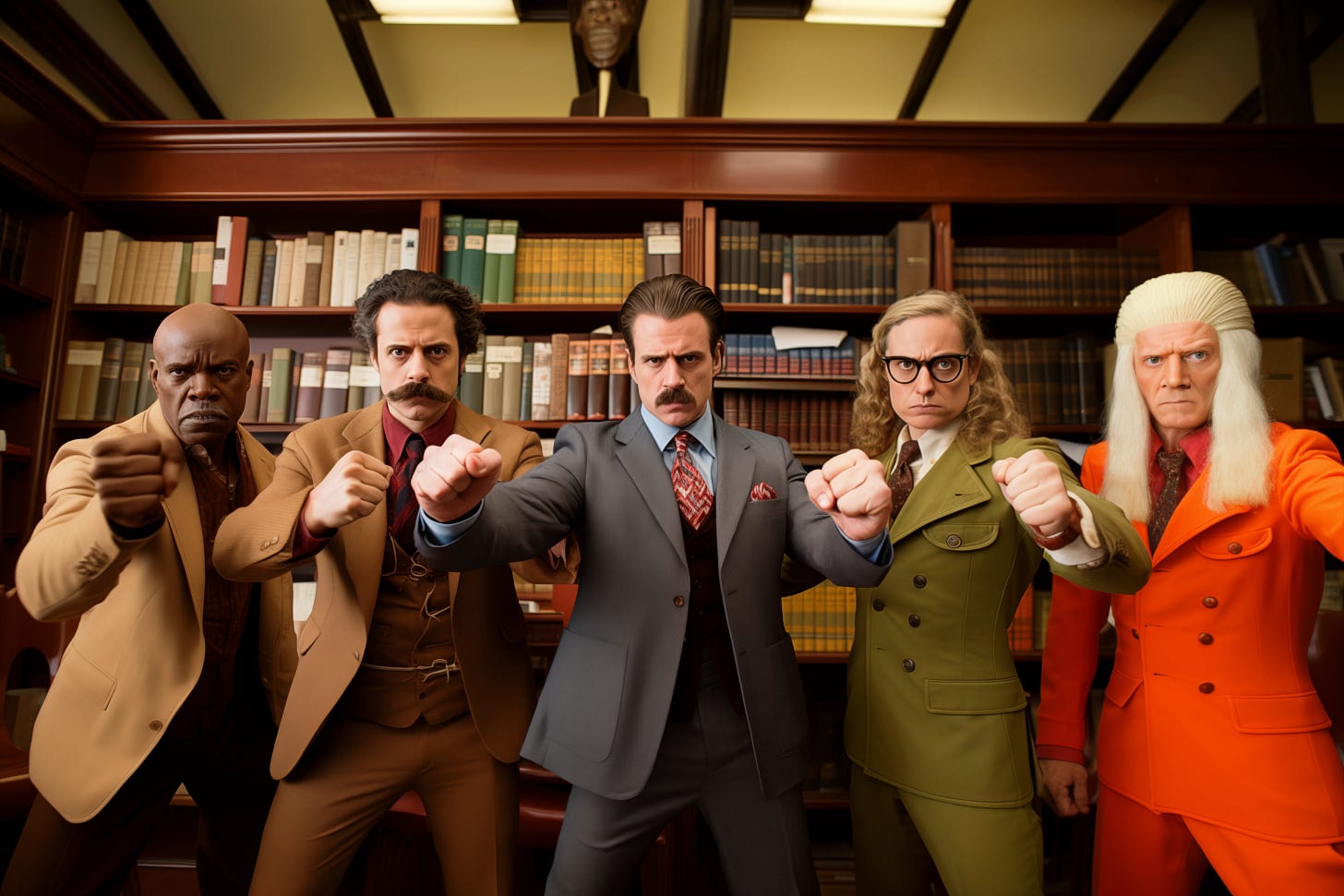Harvard has finally taken a stand.
It's been a prolonged and fraught struggle, but at long last, the job safety of paper-plagiarising genocide-minimising President Claudine Gay is secure. And so it should be. After all, who hasn't occasionally defended calls for mass murder? Sorry, I meant defended calls for mass murder in certain contexts.
Hundreds of totally-not-anti-Semitic professors rallied in the Harvard president's defence. After all, who could replace her? Yanwah Sinwar had been tentatively suggested as an interim candidate but is unfortunately preoccupied.
Still, I, for one, was sweating she wouldn't recover. Those obnoxious Jews just couldn't stay quiet. Some even made the unconvincing argument that Gay, being a leading scholar of race issues, should have known better than suggesting it's sometimes okay to demand a second Holocaust. Of course, their bizarre protestations presuppose Jews are even a race in the first place. But let's say they are; it's not like she did anything silly, like disciplining students who backed Hamas. Now, that would have been a disaster.
In the twenty-first century, it's been relatively easy to ignore anti-Semitism. Naturally, I've encountered Jew hate once in a while, but not in a way that causes more than passing discomfort. It's a slur hollered from a moving car, a staggering alcoholic, or some teen huddled in the back of a bus. We tend to wish away antisemites as a handful of isolated loonies. You know, the type that thinks Jews control the climate with space lasers, that Otto forged Anne Frank's diaries and groks who really manipulates the financial markets.
Obviously, my outlook has been somewhat naive. Our security is never assured because antisemitic animus will always simmer beneath the surface of civil society. We still haven't put a century's distance between us and Europe's blood-soaked horrors. Where 'respectable' family men marched millions of Untermenschen into Auschwitz and Treblinka slaughterhouses. We forget that Germany's Jews identified as closely with the Fatherland as we do with the West. Berlin was the new Jerusalem right up until it wasn't.
But this fact has once again been forced into our consciousness. Cloaked in a thin veil of Palestinian solidarity, anti-Semitism is back in fashion. A recent YouGov poll showed that 20% of Americans aged 18 to 29 think the Holocaust is a myth1. That's right, just like Big Foot and the Loch Ness monster. Perhaps one piece of good news is that people who deny the Holocaust cannot accuse Jews of causing something they maintain never happened. Then again, that sort of post-modern doublethink hasn't been missing in the context of October 7th, where terror apologists routinely deny Hamas atrocities even as they celebrate them as Palestinian 'resistance'.
With surveys showing scores of young Americans convinced Jews have too much power, there seems to be a prevalent feeling that we are finally getting our dues. Or, as Susan Sarandon gleefully declared during a pro-Palestian rally, Jews are "getting a taste of what it's like to be Muslim in the US." Because, of course, this nation has been taking it famously easy. Over the past two thousand years, we've relaxed and kicked back. Sipping margaritas in between occasional pogroms, inquisitions, and attempted genocides.
What comfort can we locate amidst our history's swirling darkness? How should we draw meaning from this latest surge of hatred? For many, the biblical account of Yaakov and his children's settlement in Egypt signifies the start of our first exile, Galus Mitzrayim. Yaakov's burgeoning family already carried a name, Ivrim, the title evoking an otherness embodied throughout Jewish history. All subsequent trials and persecutions stem from this archetype.
The verse states:
Israel lived in the land of Egypt in the region of Goshen; they took possession of it (Vayei'achazu), and they were fertile and significantly increased [in numbers]
{Bereishis 47:27}
In our context, Vayei'achazu has both positive and negative connotations. Its plain meaning indicates that Jews gained ownership of new property. Yet one Midrashic reading is that "the land held them and grasped them . . . like a man who is forcefully held." That is, they possessed the land yet were simultaneously possessed by it.
According to the Lubavitcher Rebbe2, Vayei'achazu's dual meaning reflects exiles' two-fold nature. It is both a constraint and an opportunity, a burden and a blessing.
Even in prosperity, we must never forget that exile obscures our moral vision and impairs our connection with God. Nevertheless, it serves a purpose. There is historical significance behind the apparent darkness of our nation's dispersion across the globe. It is a process through which God's values are transmitted to the world and which our nation develops to its fullest potential—preparing us for the final redemption.
As a result, exile is an achuzah in both senses of the word. It is equally a "possession" to develop and a "captive web" from which we must perpetually disentangle ourselves. It can only be one if it is also the other. If we treat our present condition solely as a prison, we will fail to realise its extraordinary potential. Yet, we can end up sacrificing our essence by settling in what is supposed to be a transitory state. Assimilation risks losing what defines us - our spiritual heritage and collective responsibility. Attempting to develop and elevate the Galus reality from a position of comfort would be inconceivable. It would be like pulling one's own hair in a quest to lift oneself.
There is something profoundly distressing about antisemitism. Without question, it must be fought using all the means at our disposal. But Jew hatred reminds us that our exile is not an ideal; it isn't the end of our journey. Throughout the ages, voices have arisen, calling us to a higher purpose, pointing to a mission that transcends the here and now. We need to look the current unease we feel in the eye. Take that sense of alienation and elevate it. Let this present anxiety remind us that we are not there yet, that this is not it. Then maybe, just maybe, we can draw some light out of all of this darkness.
Keep Pondering, and Have A Wonderful Week!
If you enjoyed reading this, feel free to click the ❤️ button on this post so more people can discover it on Substack 🙏
https://www.timesofisrael.com/one-in-five-young-americans-believes-the-holocaust-is-a-myth-poll-finds/
I made use of this idea a year ago to further a more personal idea:
Prisons and Possessions
"To live is to suffer," wrote Friedrich Nietzsche. Suffering is an inescapable facet of the human condition. During one's lifetime, every human being, rich or poor, strong or weak, will endure a period of anguish. Distress can manifest in emotional, financial, physical, and interpersonal forms, yet all are bitter nonetheless. But how are we expected to …







Every Jewish adult should own a firearm, one for each adult in the household. Then go to the range. It is relaxing, even meditative. In this country we are lucky to have the 1st and 2nd Amendments; the first to allow for the free exercise of religion, the second to allow for self protection.
I love this so much! And I want to restack. However, my cynicism keeps leading me to think of the rightwing, radical settlers who want to destroy olive groves in the name of reclaiming Judea and Samaria. Can we have that conversation (but somewhere where there’s no Nazi sub-stackers lurking about)?